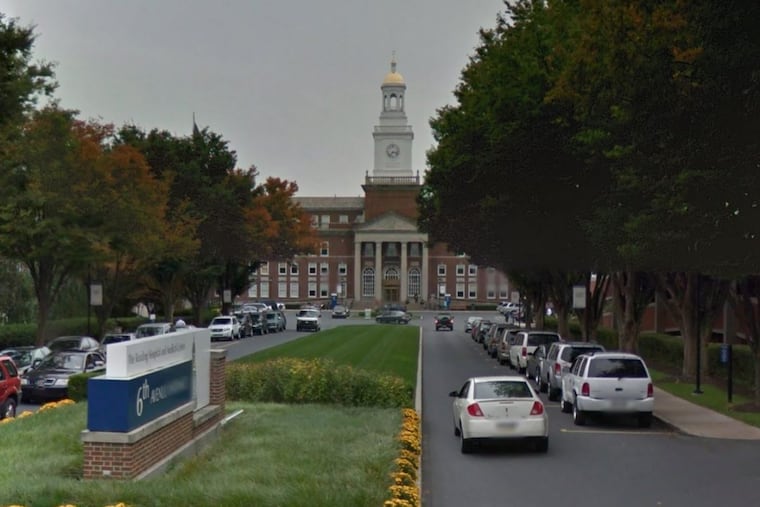Tower Health takes a scalpel to its doctors group
The cuts are meant to help stabilize the health system whose massive expansion into the Philadelphia market has led to huge losses.

Tower Health on Monday announced a restructuring of a subsidiary that employs its physicians and has been posting outsized losses as the Berks County nonprofit undertook a dramatic — and expensive — expansion into the Philadelphia market.
The changes include the consolidation of some practices, the closure of others, and cancellation of employment contracts of some doctors.
“These changes are projected to impact up to 95 providers and 100 support staff, and we will communicate directly with these individuals over the coming weeks,” according to the internal email from P. Sue Perrotty, Tower’s interim president and chief executive. The number refers to those who could lose their jobs as well as those who could be transferred to other practices.
The note did not say how many doctors and others will lose their jobs. The restructuring, which includes physician pay changes, is expected to save $70 million.
The Tower Health Medical Group, which employs 890 doctors, including medical residents, had an operating loss of nearly $250 million on $206 million in revenue in the 12 months ended June 30, 2020. Results were not much better in the six months through December.
Overall, Tower said it had trimmed $101.7 million in expenses in the nine months ended March 31, which means it could be on track for an operating loss in the $300 million range for the fiscal year that ends June 30. That would be an improvement compared with Tower’s $439 million operating loss last year.
Tower said its facilities have shown positive momentum starting in March in revenue and patient visits.
Monday afternoon, Tower management had a scheduled call with municipal bond investors, who are closely monitoring the amount of cash Tower has on hand to pay its day-to-day bills. That figure has been declining steadily. Tower has closed its investor calls to the media.
In March, Tower laid off 15 employees at St. Christopher’s Hospital for Children, which it co-owns with Drexel University. A bond analyst at Fitch Ratings described the move as chipping away at the edges for a system that has a high debt load and massive, persistent losses.
“They need to make some draconian decisions,” Kevin Holloran said at the time. He had recently downgraded Tower’s credit rating by three notches to B+, deep in junk-bond territory.
Tower’s path to financial peril started in 2017 when it paid $423 million in borrowed money for five money-losing community hospitals in Philadelphia, Chester, and Montgomery Counties and then spent at least $120 million to install a top-of-the-line electronic health records system.
Since Tower acquired those hospitals in Chestnut Hill, Coatesville, Jennersville, Phoenixville, and Pottstown, they have lost more than $460 million.
Tower and Drexel paid $58 million for St. Christopher’s, split evenly, but the deal did not include the property, most of which is owned by a Philadelphia real estate investment firm.
Last fall, Tower’s board launched an effort to sell those five hospitals and St. Christopher’s, sparing only its “mother ship” Reading Hospital in West Reading.
After nothing satisfactory came of that, the board decided to look at whether a larger system might want to acquire all of Tower, which had nearly $2 billion in revenue in the year ended June 30, 2020.
Bids were due April 23.
Tower officials have said only that its board of directors received several “indications of interest,” though it’s likely that a couple of potential buyers were interested only in Reading Hospital, which would be difficult to sell outside of bankruptcy.
Perrotty told employees in an email last week that she expected the board to take until the end of June to “determine if a partnership option will best meet Tower Health’s needs for the future.”